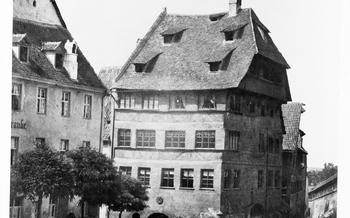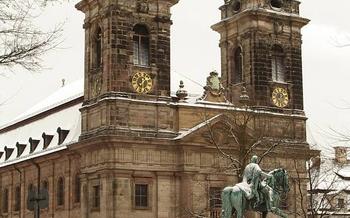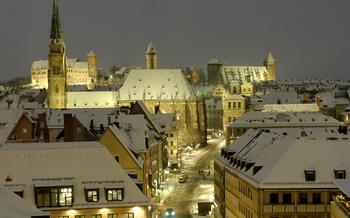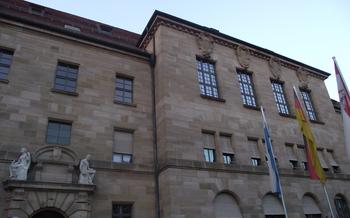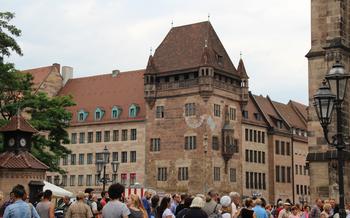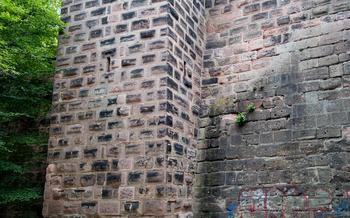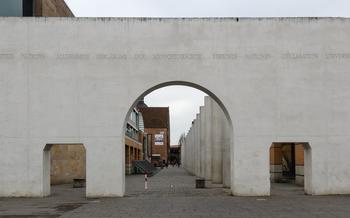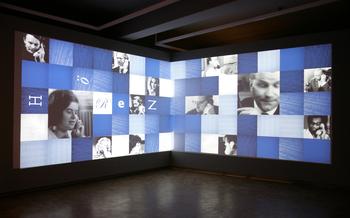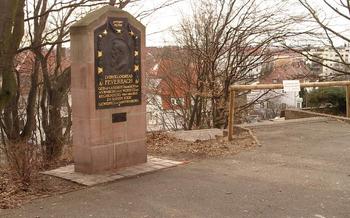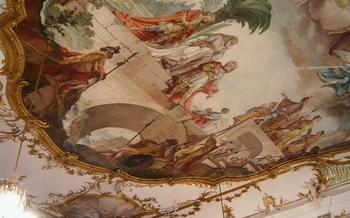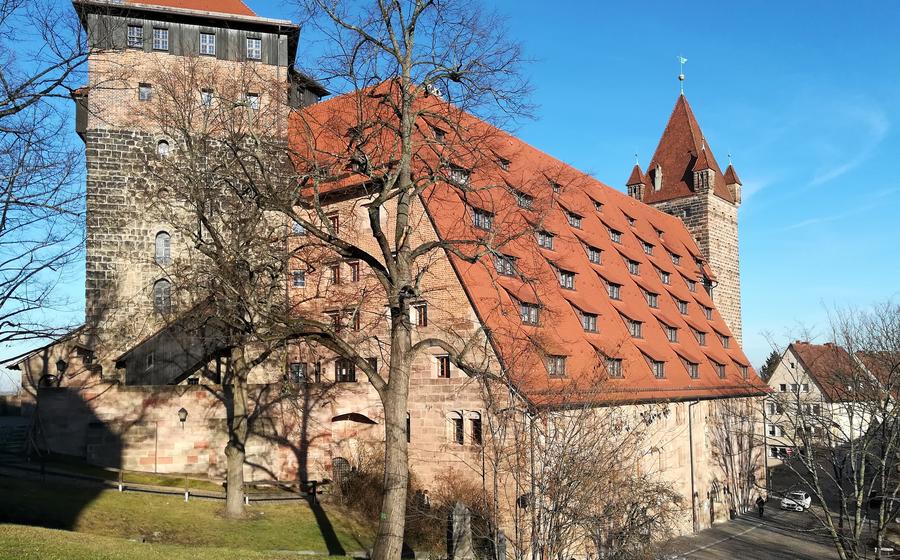
Museum im Koffer
- The Museum im Koffer: A Unique Experience
- Location and Accessibility
- Hours of Operation and Admission Fees
- Exhibitions and Displays
- Guided Tours and Programs
- Museum Shop and Souvenirs
- Accessibility for Families and Children
- Research and Educational Opportunities
- Historical Significance and Cultural Context
- Virtual Tours and Online Resources
- Accessibility for Visitors with Disabilities
- Photography and Social Media
- Food and Beverage Options
- Nearby Attractions and Points of Interest
- Insider Tip: Unraveling Hidden Treasures
The Museum im Koffer: A Unique Experience
The Museum im Koffer, meaning "museum in a suitcase," is a captivating and innovative museum located in the heart of Nuremberg, Germany. Founded in 1999, this one-of-a-kind museum offers visitors a truly immersive and interactive experience that transports them back in time to explore the rich history and cultural heritage of the region. The museum's unique concept lies in its collection of over 100 suitcases, each representing a different historical period or theme. Inside these suitcases, visitors discover a treasure trove of artifacts, documents, and personal stories that bring the past to life. From medieval manuscripts to vintage clothing, each suitcase tells a unique tale, inviting visitors to embark on a captivating journey through time.
The Museum im Koffer is not just a collection of artifacts; it is a place where history comes alive. Through interactive exhibits, multimedia presentations, and hands-on activities, the museum engages visitors of all ages in a dynamic and educational experience. Whether you are a history buff, a culture enthusiast, or simply seeking a unique adventure, the Museum im Koffer promises an unforgettable journey through the annals of time.
Location and Accessibility
The Museum im Koffer is conveniently located in the heart of Nuremberg, Germany, at Burgstrasse It is easily accessible by various means of transportation.
For those arriving by public transport, the closest tram stop is "Burgstrasse", which is served by tram lines 4 and From the tram stop, it is just a short walk to the museum.
Visitors arriving by car can park at the nearby "Parkhaus Burgstrasse" parking garage. The parking garage is located just a few steps from the museum, making it a convenient option for those who prefer to drive.
The museum is fully accessible for visitors with disabilities. Wheelchair ramps and elevators are available throughout the building, ensuring that all visitors can enjoy the museum's exhibits without any barriers.
Hours of Operation and Admission Fees
The Museum im Koffer is open to the public from Tuesday to Sunday, with varying hours on different days. On Tuesdays, Thursdays, and Fridays, the museum is open from 10:00 AM to 5:00 PM. On Wednesdays, the museum extends its hours from 10:00 AM to 7:00 PM to accommodate visitors who prefer evening visits. On weekends, the museum is open from 11:00 AM to 5:00 PM, providing ample time for families and leisure travelers to explore the exhibits.
Admission fees to the Museum im Koffer are affordable and designed to make the museum accessible to visitors from all backgrounds. Adults can purchase a standard ticket for 6 euros, while children between the ages of 6 and 16 are eligible for a reduced rate of 3 euros. Family tickets, which admit two adults and up to three children, are available for 15 euros, offering a cost-effective option for families with multiple children.
The museum also offers free admission on the first Sunday of every month, allowing visitors to experience the museum's collection without any financial barriers. Additionally, school groups and educational institutions can arrange guided tours at discounted rates, making the museum an attractive destination for educational field trips.
Tickets can be purchased at the museum's ticket counter or conveniently booked online through the museum's website. Online booking is recommended for visitors who prefer to secure their tickets in advance, especially during peak tourist seasons or for specific guided tours.
Exhibitions and Displays
The Museum im Koffer offers a diverse range of exhibitions and displays that captivate visitors of all ages. The permanent exhibition, "The History of Luggage," takes visitors on a journey through time, showcasing the evolution of luggage from ancient travel bags to modern suitcases. Interactive displays and multimedia presentations bring the history of travel and transportation to life.
One of the most popular exhibits is the "Suitcases of the World" collection, which features a fascinating array of suitcases from different cultures and eras. Visitors can admire intricate designs, unique materials, and personal belongings that tell stories of journeys near and far.
The museum also hosts temporary exhibitions that explore specific themes or regions. Recent exhibitions have focused on the history of travel photography, the golden age of ocean liners, and the cultural significance of luggage in literature and art.
Throughout the museum, interactive elements engage visitors and encourage them to explore the exhibits in a hands-on way. Children can dress up in historical travel attire, play interactive games, and solve puzzles related to the history of luggage. The museum's educational programs also offer workshops, lectures, and guided tours for visitors of all ages.
Guided Tours and Programs
The Museum im Koffer offers guided tours in German and English, providing visitors with an in-depth understanding of the museum's collection and its historical significance. The tours are led by knowledgeable and enthusiastic guides who bring the exhibits to life with their engaging commentary. Tours typically last for around 60-90 minutes and can be tailored to specific interests or requirements.
In addition to guided tours, the museum also organizes a variety of special programs, workshops, and events throughout the year. These programs are designed to engage visitors of all ages and backgrounds, and may include lectures, demonstrations, hands-on activities, and interactive workshops. Special programs are often themed around specific exhibits or historical events, and offer a unique opportunity to learn more about the museum's collection and its relevance to contemporary society.
Reservations or prior registration are recommended for guided tours and special programs, especially for groups or during peak tourist season. Visitors can book their tours online through the museum's website or by contacting the museum directly.
Museum Shop and Souvenirs
The Museum im Koffer offers a charming museum shop where visitors can find a range of unique and memorable souvenirs to commemorate their visit. Located near the museum's exit, the shop is a treasure trove of items inspired by the museum's collection and exhibitions. From postcards and posters featuring iconic images from the museum's archives to replicas of historical artifacts and traditional crafts, there is something for every taste and budget.
The museum shop is particularly renowned for its selection of exclusive items that cannot be found anywhere else. These include limited-edition prints, handcrafted jewelry, and souvenirs made in collaboration with local artisans. Visitors can also find a variety of books, including exhibition catalogs, historical texts, and children's books related to the museum's themes.
Purchasing souvenirs from the museum shop is not just a way to take home a memento of your visit but also a meaningful way to support the museum's mission and contribute to its ongoing work. By purchasing souvenirs, visitors help to ensure that the museum can continue to preserve and share its valuable collection, as well as to develop new educational programs and exhibitions for future generations.
Accessibility for Families and Children
The Museum im Koffer is a welcoming and family-friendly space that caters to visitors of all ages. The museum's interactive exhibits and activities are designed to engage and educate children while making learning fun. Special programs and events, such as workshops, storytelling sessions, or themed days, are organized regularly to provide a memorable and enriching experience for families.
Families with young children will find changing tables, nursing rooms, and stroller parking areas conveniently located within the museum. The museum staff is always ready to assist with any questions or requests to ensure a comfortable and enjoyable visit for families.
To make the museum visit even more enjoyable for children, parents can consider involving them in planning the visit. Encourage children to choose exhibits that interest them and allow them to explore at their own pace. Interactive games and quizzes can help keep children engaged and entertained throughout the museum visit.
The Museum im Koffer offers a unique opportunity for families to learn about history and culture together. It is a place where children can spark their curiosity, foster their imagination, and create lasting memories with their loved ones.
Research and Educational Opportunities
The Museum im Koffer is not just a repository of historical artifacts but also a vibrant center for research and education. Scholars and students can delve into the museum's extensive archives, which house a treasure trove of documents, photographs, and artifacts related to Nuremberg's history and culture. The museum's library offers a comprehensive collection of books, journals, and research materials on various topics, including local history, art, and design.
The museum collaborates with schools and universities to develop educational programs that bring history to life for students of all ages. Guided tours tailored to different grade levels introduce students to the museum's exhibits and encourage critical thinking and engagement with the past. Workshops and interactive activities allow students to explore historical concepts through hands-on experiences and creative projects.
For those seeking more in-depth research opportunities, the museum offers internships, volunteer positions, and research fellowships. These programs provide hands-on experience in museum research, collection management, and exhibition development. Interns and fellows have the chance to work alongside museum professionals, contribute to ongoing research projects, and gain valuable skills in the field of museum studies.
Through its educational initiatives and research collaborations, the Museum im Koffer plays a vital role in preserving and promoting the historical and cultural heritage of Nuremberg, while fostering a new generation of scholars and researchers.
Historical Significance and Cultural Context
The Museum im Koffer holds immense historical significance, deeply intertwined with Nuremberg's rich past. The city has witnessed pivotal moments that shaped the course of history, including the infamous Nuremberg Trials, where Nazi war criminals faced justice. The museum's collection bears witness to these events, offering a profound insight into the region's complex history.
Beyond its historical significance, the museum also delves into the cultural context of Nuremberg and its surrounding region. The exhibits showcase the unique traditions, customs, and craftsmanship that define the local heritage. Visitors can explore the intricate wood carvings, delicate glasswork, and vibrant textiles that have become synonymous with the region's artistic legacy.
The museum serves as a custodian of Nuremberg's cultural identity, preserving and promoting the region's rich tapestry of traditions. It hosts special events, workshops, and demonstrations that celebrate the local culture, providing visitors with an immersive experience that goes beyond the museum walls.
Virtual Tours and Online Resources
The Museum im Koffer extends its reach beyond its physical space through virtual tours and online resources, allowing visitors to engage with the museum's collection from anywhere in the world. Embark on a virtual journey through the museum's galleries, exploring the captivating exhibits and delving into the stories behind the artifacts.
The museum's website serves as a treasure trove of information, offering detailed descriptions of the exhibits, interactive educational materials, and insightful videos that bring history to life. Explore the museum's collection through high-resolution images, zoom in on intricate details, and unravel the mysteries of the past.
Stay connected with the museum's vibrant online community through social media platforms. Follow the museum's official accounts to receive updates on upcoming exhibitions, special events, and behind-the-scenes glimpses into the museum's world. Engage in discussions with fellow enthusiasts, share your experiences, and participate in virtual events and challenges.
Whether you're planning a visit or simply curious to learn more about Nuremberg's rich history, the Museum im Koffer's virtual tours and online resources offer a captivating and accessible way to experience the museum's treasures.
Accessibility for Visitors with Disabilities
The Museum im Koffer is committed to providing an accessible and inclusive environment for all visitors, including those with disabilities. The museum features a range of accessible features to ensure that everyone can fully enjoy and engage with its exhibitions.
Wheelchair ramps and elevators are available throughout the museum, allowing visitors with mobility impairments to navigate the space with ease. Accessible restrooms are also provided for the convenience of visitors with disabilities.
For visitors with visual impairments, the museum offers audio guides that provide detailed descriptions of the exhibits. These guides can be rented at the museum's front desk. Additionally, large-print materials and tactile exhibits are available for visitors with low vision.
The museum staff is trained to assist visitors with disabilities and can provide additional accommodations as needed. Visitors with specific requirements or concerns are encouraged to contact the museum in advance to discuss their needs.
The Museum im Koffer strives to create a welcoming and inclusive environment for all visitors, regardless of their abilities. By providing accessible features and accommodations, the museum ensures that everyone can have a meaningful and enjoyable experience.
Photography and Social Media
The Museum im Koffer encourages visitors to capture and share their experiences through photography and social media. Visitors are welcome to take photographs of the exhibits for personal use and to share them on social media platforms. The museum appreciates when visitors tag the museum and use relevant hashtags in their posts, allowing the museum to connect with its visitors and showcase the museum's collection to a broader audience.
The museum also organizes social media campaigns and challenges to engage with visitors and promote the museum's exhibitions and events. Visitors are encouraged to participate in these campaigns and share their creative interpretations of the museum's exhibits. By sharing their experiences and insights, visitors can help raise awareness about the museum and its mission, and contribute to the museum's online community.
Food and Beverage Options
The Museum im Koffer does not have its own café or restaurant, but visitors can find a variety of food and beverage options nearby. Several cafés, bakeries, and restaurants are located within walking distance of the museum, offering a range of cuisines to suit different tastes and budgets. For a quick bite, visitors can grab a sandwich or pastry from a nearby bakery or café. For a more substantial meal, there are several restaurants nearby that offer traditional German cuisine, as well as international dishes.
For those on a budget, there are several affordable options available. The museum is located near a supermarket, where visitors can purchase snacks and drinks to bring with them. Additionally, there are several vending machines located within the museum where visitors can purchase snacks and beverages.
For those with special dietary needs, there are several restaurants nearby that offer vegetarian, vegan, and gluten-free options. Visitors can also inquire with the museum staff about any special dietary accommodations that may be available.
Nearby Attractions and Points of Interest
Nuremberg is a city rich in history and culture, offering numerous attractions and points of interest within a short distance of the Museum im Koffer. The nearby Nuremberg Castle, perched atop a hill, is a must-see destination, showcasing stunning views of the city and housing several museums, including the Germanisches Nationalmuseum. The Nuremberg Trials Memorial, located in the historic Palace of Justice, serves as a poignant reminder of the city's role in the aftermath of World War II. For art enthusiasts, the Neues Museum Nürnberg features a diverse collection of modern and contemporary art, while the Albrecht Dürer House offers a glimpse into the life and work of the renowned Renaissance artist.
A short walk from the Museum im Koffer, visitors can explore the Hauptmarkt, Nuremberg's central square, adorned with the iconic Schöner Brunnen, a 14th-century fountain. The square is surrounded by historic buildings, including the Frauenkirche, a Gothic church known for its intricate stained glass windows, and the Rathaus, the city hall. To delve deeper into the city's history, the Stadtmuseum Nürnberg provides a comprehensive overview of Nuremberg's past, from its medieval origins to its role as a center of industry and commerce.
For those seeking a unique experience, the Toy Museum Nuremberg showcases an extensive collection of toys from around the world, while the DB Museum offers an interactive journey through the history of German railways. The German National Museum, one of the largest museums in Germany, houses a vast collection of art, cultural artifacts, and scientific instruments, spanning from prehistoric times to the present day.
Nuremberg is well-connected by public transportation, making it easy to explore these nearby attractions. Visitors can purchase a Nuremberg Card, which provides unlimited access to public transportation and free or discounted admission to many museums and attractions, including the Museum im Koffer.
Insider Tip: Unraveling Hidden Treasures
Step into the heart of the Museum im Koffer and seek out the hidden masterpieces that often go unnoticed. One such gem is the intricate miniature model of a medieval village, tucked away in a corner of the "History of Toys" exhibit. This meticulously crafted diorama transports you back in time, showcasing the daily life and architecture of a bygone era. Don't miss this opportunity to discover the secrets that lie within the museum's collection. Engage with the knowledgeable staff or docents, who are always ready to share fascinating stories and insights about the exhibits. Their passion for preserving and presenting Nuremberg's rich history will enhance your visit and leave you with a deeper appreciation for the museum's treasures.
